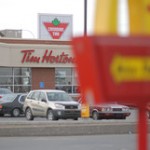Search Results
-
Sprawl-free Life: Freedom, Character, and Convenience
The gist: Talking about smart city planning in terms of our core values — quality of life, family, freedom, choices — and emphasizing convenience and community character will set the stage for broad support of policies that make sure we build family-friendly and climate-friendly places to live. Talking Points: connecting our core values to policies that promote healthy, climate‑friendly places to live–and limit sprawl We know in our guts that...Read more » -
Utilities and Auctions: There Is No Free Power Lunch
An economy-wide cap on climate warming emissions—our preferred climate policy —has one enormous sticking point: once the cap is in place, who gets the right to pollute? That’s the core of the debate over the “allocation” of emissions permits. Literally billions of dollars are at stake. And not too surprisingly, just about every industry you can think of believes that, once strict emissions limits are imposed, they should get a generous...Read more » -
The Future Ain't What It Used to Be
Ok, this is weird. Washington’s transportation department thinks that vehicle travel is going to go up up up. See, for example, this graph… Total Vehicle Miles Traveled 1980 – 2030 (projected)(Miles in billions) The solid red line to the left represents historic traffic volumes—technically, vehicle miles travelled, or “VMT” in planner-speak. The dashed line to the right is a prediction of future VMT growth. But look: there’s something awfully suspicious...Read more » -
Walk 'Til You Qualify
Awesome. I’ve always wanted something like this: a city by city map of affordable housing, indexed to local wages. But wait, there’s more! This map combines both housing and transportation costs. The result is maybe a bit surprising. In-city areas tend to look pretty good, while far-flung suburbs—where you get a lot of square footage (and lawnage) for your money—don’t look so good at all. It makes a little clearer the...Read more » -
Penalizing Car-sharing, Update 2
British Columbia will exempt car sharing from car-rental tax—a decision announced in the same provincial budget that introduced the world’s most comprehensive carbon tax shift. Washington, however, will not. Discussion in Olympiaon the issue stalled this year. So Washington car-share members are still paying double taxes: sales tax and car-rental tax. It’s disappointing, considering that the legislature passed a law requiring steep reductions in both greenhouse gas emissions and driving...Read more » -
Understanding the “Political Brain”: A Gut-Check Guide
The gist: Drew Westen has said, “Wherever you’re heading, ideas provide the roadmap, but emotions provide the fuel.” In his acclaimed new book, The Political Brain, Westen shows, through careful scientific observation, that emotion is one of the most potent sources of motivation that drives human behavior (there’s a reason they share their Latin root). “[The brain] is not a dispassionate calculating machine, objectively searching for the right facts, figures,...Read more » -
Cap and Trade for the West: FAQs
National and regional leaders in Canada and the United States are recommending cap and trade as a feasible, effective solution for curbing climate change. Sightline has worked closely with policymakers from the Western Climate Initiative (WCI) to design a cap-and-trade system for our region. This FAQ answers some common questions about the system.Read more » -
Cap and Caulk: How Smart Climate Policy Can Cut Our Energy Costs
True confessions: I love weatherstripping. And programmable thermostats. And insulation—all kinds. Oh, and efficient shower heads with “Navy shower” shut-off valves. And high-efficiency appliances. And waste-water heat recovery systems. You get the idea: I actually enjoy the process of making buildings more energy wise—enjoy as in, “Yippee, it’s Saturday! Where’s my caulk gun?” So today’s topic is especially near to my heart: the role in climate policy of low-income weatherization...Read more » -
Cap and Buffer: Fairness for Working Families
Climate policy offers an enormous opportunity not only to undo our fossil-fuel addiction and build a stable energy future, but also to reverse the natural unfairness of climate change itself. I’ve said it before: energy prices are going up no matter what, with or without climate policy. But smart policy can turn rising costs into broadly shared benefits. It can shield working families, fund a shift to a clean future...Read more » -
Cap and Dividend: Climate Pricing and Fairness
Climate change is regressive by nature, but solutions don’t have to be. A fair cap-and-trade system can be progressive, broadly sharing both the burdens and the potential benefits of preventing climate disruption. We have an enormous opportunity to get climate policy right—and we know how it can be done. In fact, smart policy is our opportunity to fight climate change and minimize economic injustice. This is the single most important...Read more »




